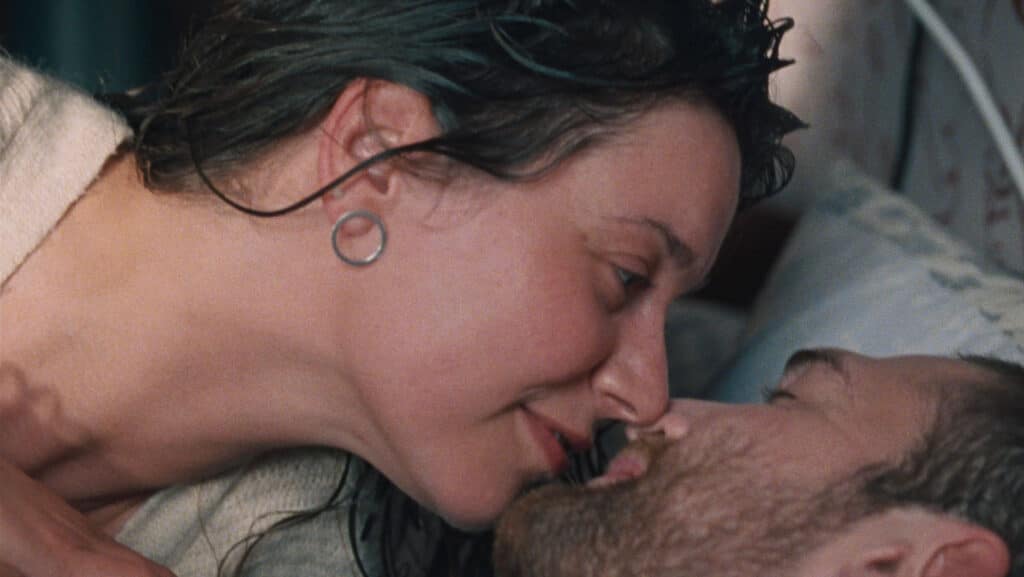Like the couple it’s about, “Slow” acknowledges and, to some degree, gives in to expectations set by a world overloaded with conformist-minded romcoms and conventional relationship blueprints. But it’s worth seeing. And for a weeklong run starting Friday at the Gene Siskel Film Center, Chicago audiences can see for themselves.
Simple, efficient set-up here, in Lithuanian writer-director Marija Kavtaradze’s second feature. We meet Elena in her natural element, in a dance studio, working out some new contemporary choreography. A man arrives and introduces himself as Dovydas, a sign language interpreter. He’s bringing a group of deaf adolescent students to the studio where Elena develops a dance piece with them, communicating non-verbally, as choreographer and performer, and through Dovydas’ signing.
There’s a warmth and something of a spark between the two adults. They share a performer’s expressivity in their respective mediums. “Slow” returns periodically to scenes of Dovydas alone, on camera, providing eloquent sign language translation for pop song lyrics; throughout the film, Elena rehearses in the studio with two fellow dancers, as they prepare a piece for full production.
Soon enough, after a few walk-and-talks, they’re in Elena’s bedroom, on the brink of a next step. That step in “Slow” turns out to be two words that reset Elena’s expectations. “I’m asexual,” Dovydas says. Not attracted to anyone, really, he adds. “Never was.” The end? Hardly; the friendship already underway has created a closeness that feels right. “Slow” is about how that feeling leads to a relationship frontier new to Elena, and rewarding and challenging and frustrating and fraught to both parties.
At its best, “Slow” pays intimate attention to the way these two deal, humanely, sometimes testily, with their circumstances. Shooting on mellow 16-millimeter film, director Kavtaradze does very well by both key performers. Greta Grineviciute gives Elena an easygoing combination of solidity and freedom, while Kestutis Cicenas lends Dovydas the affable, somewhat guarded air of a man in limbo. A comfortable grey area?
The script has its on-the-nose impulses. A visit with Elena’s ice-cold, fat-shaming mother explains it all for us, too bluntly. And while the actors work with real skill and ease together, “Slow” tends to establish and re-establish the characters’ connection in familiar ways, with lots of tense conversational silence followed by mutual peals of laughter.
When the scenes work, however, they really work, and the conversation feels like some things are being said, straightforwardly and without ambiguity (you know, like they talk in the movies) while other things are not. “Slow” goes only so far into Dovydas’s self-proclaimed state of sexual being, while complicating it along the narrative path. I took the film not as any sort of design for living, or facile explanation of anything, but as a design for communicating — honestly, humanely, painfully, sometimes — for the good of whatever relationships yours happen to be.
“Slow” — 3 stars (out of 4)
No MPA rating (sexual content, some language)
Running time: 1:48
How to watch: May 10-16 at the Gene Siskel Film Center, 164 N. State St.; siskelfilmcenter.org. In Lithuanian and English with English subtitles.
Michael Phillips is a Tribune critic.


